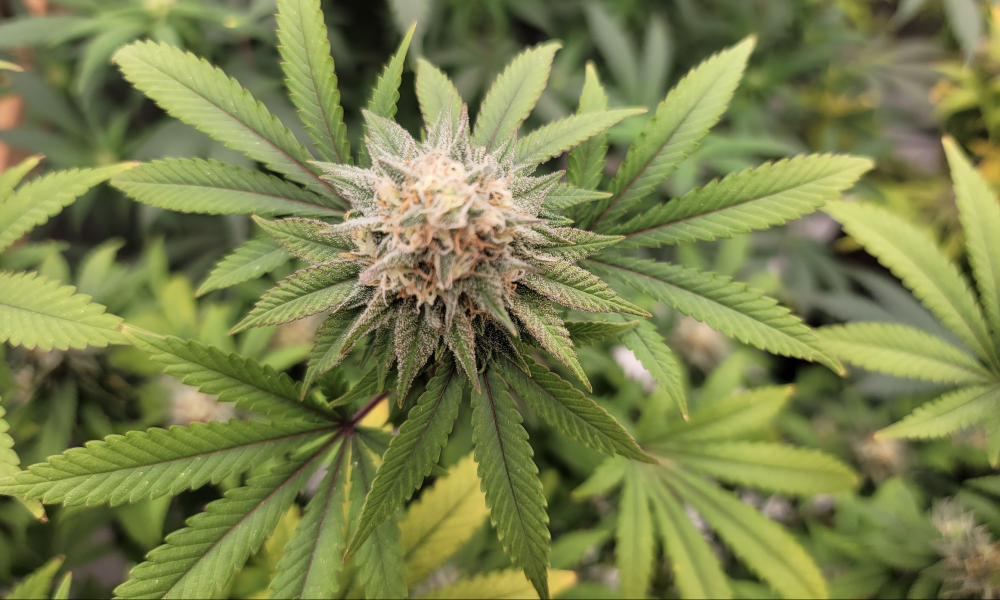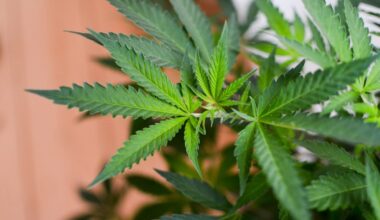The U.S. Supreme Court is getting more pressure to take up a case on the legality of establishing safe injection sites where people can use illicit drugs in a medically supervised environment, with attorneys general from 10 states and D.C. filing an amicus brief urging the justices to take action.
Representatives from 14 cities and counties, as well as the mayor of Philadelphia, which is at the center of the current case, also filed amici briefs in support of the case in recent days.
The attorneys general of Delaware, Illinois, Massachusetts, Michigan, Minnesota, New Mexico, Oregon, Rhode Island, Vermont and Virginia, plus Washington, D.C., told the Supreme Court in the brief last week that safe consumption facilities are “emerging as a promising measure to save lives and to fill a time-sensitive gap in medical care.”
“The Amici States are battling a nationwide opioid crisis that claims over 130 lives every day,” the top prosecutors said. “They are on the front lines of this public health emergency, fighting to save their citizens from overdose deaths. As a result, they share a strong interest in ensuring that multiple, effective interventions are available to address the epidemic, to prevent opioid use disorder, and to treat those suffering from opioid dependence.”
The brief cites research showing that the harm reduction services can mitigate overdose deaths and help people enter into treatment.
NEW: As our country struggles with the opioid crisis, states must be free to use tools like safe injection sites. I led 11 AGs in encouraging the Supreme Court to hear this case and support Safehouse, because medical supervision can save lives.https://t.co/PBN5K7rUj3
— AG Karl A. Racine (@AGKarlRacine) September 27, 2021
“The COVID-19 pandemic has only exacerbated the opioid crisis, taking the lives of far too many Americans, including District residents who continue to overdose,” D.C. Attorney General Karl Racine (D), who led the brief, said in a press release.
Many of the attorney general who are now calling on the Supreme Court to take up the supervised consumption case also joined a brief earlier this year in a separate federal case involving access to psilocybin for cancer patients.
The harm reduction case at hand, meanwhile, concerns the nonprofit organization Safehouse, which was set to launch a safe consumption site in Philadelphia before being blocked by a legal challenge from the Trump administration. It filed a petition with the nation’s highest court last month to hear the case.
Beyond the states’ brief, local officials in cities and counties across the U.S. are also imploring the Supreme Court to take up a review of the matter.
Signatories include counsel for Albuquerque, New Mexico; Austin, Texas; Chicago, Illinois; New York City, New York; Oakland, California; Pittsburgh, Pennsylvania; San Diego, California; San Francisco, California; Seattle, Washington; Somerville, Massachusetts; King County, Washington; Los Angeles County, California; Multnomah County, Oregon; and Washtenaw County, Michigan.
“There is ever-stronger evidence that overdose-prevention sites can reduce the mortality caused by this epidemic and produce significant community benefits in public health and safety,” the local officials wrote. “Sites like the one Safehouse proposes also further federal public health policy, as they advance the objectives and methods recommended by multiple federal agencies.”
“The promise of overdose-prevention sites is not an empty one, nor a hypothetical one. It is based on facts, research, and real-world precedent,” they continued. “Overdose-prevention sites would help stop—or at the least, slow—the loss of lives in amici’s communities.”
Local officials from Somerville separately participated in a hearing on Monday before the Massachusetts state legislature’s Joint Committee on Mental Health, Substance Use and Recovery on bills to decriminalize drug possession and legalize safe consumption sites. The official said there are plans in the work to launch a safe injection facility in the jurisdiction. And they want to see the statewide bill pass to provide additional protections against being federally penalized.
Another recent amicus brief came from Philadelphia Mayor James Kenney (D), who argued that the “benefits of overdose prevention sites are well studied and well documented: they save lives, provide a valuable gateway to treatment, and reduce other harms associated with opioid use.”
A coalition of 80 current and former prosecutors and law enforcement officials—including one who is President Joe Biden’s pick for U.S. attorney of Massachusetts—previously filed a brief urging the Supreme Court to take up Safehouse’s safe injection case.
Fair and Justice Prosecution, the group that coordinated the amicus brief, also organized a tour of Portugal for 20 top prosecutors in 2019 so they could learn about the successful implementation of the country’s drug decriminalization law.
If the Supreme Court were to take up the case and rule in favor of Safehouse, it could embolden advocates and lawmakers across the country to pursue the harm reduction policy.
The governor of Rhode Island signed a bill in July to establish a safe consumption site pilot program where people could test and use currently illicit drugs in a medically supervised environment. It became the first state in the country to legalize the harm reduction centers. It’s not clear whether the Department of Justice will seek to intervene to prevent the opening of such facilities in that state.
Massachusetts lawmakers advanced similar legislation last year, but it was not ultimately enacted.
A similar harm reduction bill in California, sponsored by Sen. Scott Wiener (D), was approved in the state Senate in April, but further action has been delayed until 2022.
At the same time that Safehouse is turning to the Supreme Court, it also announced recently that it will be returning the the federal district court that gave it an initial 2019 victory in support of establishing a safe injection facility before it was overturned in the appeals court.
The organization is making the unique argument that the federal government’s decision to block it from providing the service violates religious freedom by subjecting participants “to criminal penalties for exercising their sincerely held religious beliefs that they have an obligation to do everything possible to preserve life and to provide shelter and care to the vulnerable, including those suffering from addiction.”
In 2018, a congressional subcommittee approved legislation to specifically prohibit Washington D.C. from using local tax dollars to help open safe consumption facilities. But that provision was not enacted and has not been reintroduced since.
A 2020 study found that people “who reported using supervised injection facilities on an at least weekly basis had a reduced risk of dying compared to those who reported less than weekly or no use of this health service.”
IRS Official Offers Tax Advice To Marijuana Businesses And Says Feds Expect Industry To Keep Growing
Medical Disclaimer:
The information provided in these blog posts is intended for general informational and educational purposes only. It is not a substitute for professional medical advice, diagnosis, or treatment. Always seek the advice of your physician or other qualified healthcare provider with any questions you may have regarding a medical condition. The use of any information provided in these blog posts is solely at your own risk. The authors and the website do not recommend or endorse any specific products, treatments, or procedures mentioned. Reliance on any information in these blog posts is solely at your own discretion.







